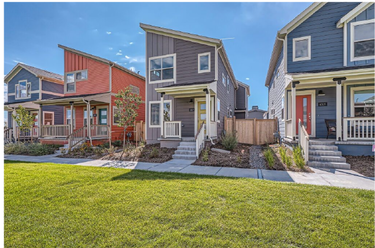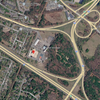Small rental homes and duplexes proposed for corner of Carman and Fuller Station roads
GUILDERLAND — A proposal to build five duplexes and a 12-home “pocket neighborhood” is in the early stages of development.
Project developer Mason Scholtes is proposing five duplexes along Carman Road and 12 Fuller Station Road cottages set up in a “pocket neighborhood” — homes between 600 and 1,200 square feet “clustered together around a community green space,” according to the developer’s application.
While the median size of homes in the United States in the 1950s was under 1,000 square feet, since 2000, the median size has doubled at over 2,000 square feet, sparking a “tiny house” movement for dwellings under 400 square feet.
The Guilderland project would be located on a 3.2-acre parcel at the corner of Carman and Fuller Station roads, across the street from Pine Bush Elementary School
All the units would be rentals.
The project was presented to the town’s Development Planning Committee at its Jan. 17 meeting. The committee meetings give staff from various town departments a first chance to provide developers with feedback typically before any formal steps are taken.
Scholtes pitched the affordability of the project as well as its adherence to recommendations made by the neighborhoods-and-housing subcommittee of the town’s Comprehensive Update Plan Committee.
With rents between $1,200 and $1,800 for one- and two-bedroom units, Scholtes’ aim, following the subcommittee’s recommendations, is to provide a balanced blend of quality and affordable housing, including diverse housing types and price ranges, while emphasizing environmental enhancements and economic growth.
Town Planner Ken Kovalchik said the cost to build a home in Guilderland is somewhere in the neighborhood of $250 to $300 a square foot, a figure with which Scholtes agreed. The cost savings, it was explained, comes from building fewer square feet per home.
As with many projects that come before the committee, there were water and sewer concerns.
One issue was how to handle the sewer lateral connections for each unit in the proposed clustered setting. The goal is to avoid creating a complex network of pipes that could lead to long-term maintenance problems.
The exact location of the current sewer line on the property was unclear. One suggestion was to have a single trunk line running down the center of the development, with individual lateral connections branching off to each home.
Ensuring water access for each unit was discussed — in part because there was discussion that in the future the rentals could be sold off — and it was suggested the project’s water line could be looped, a reference to the design of the water distribution system. In a looped system, the water mains form a loop, or multiple loops, rather than just extending in a single direction from the source.



